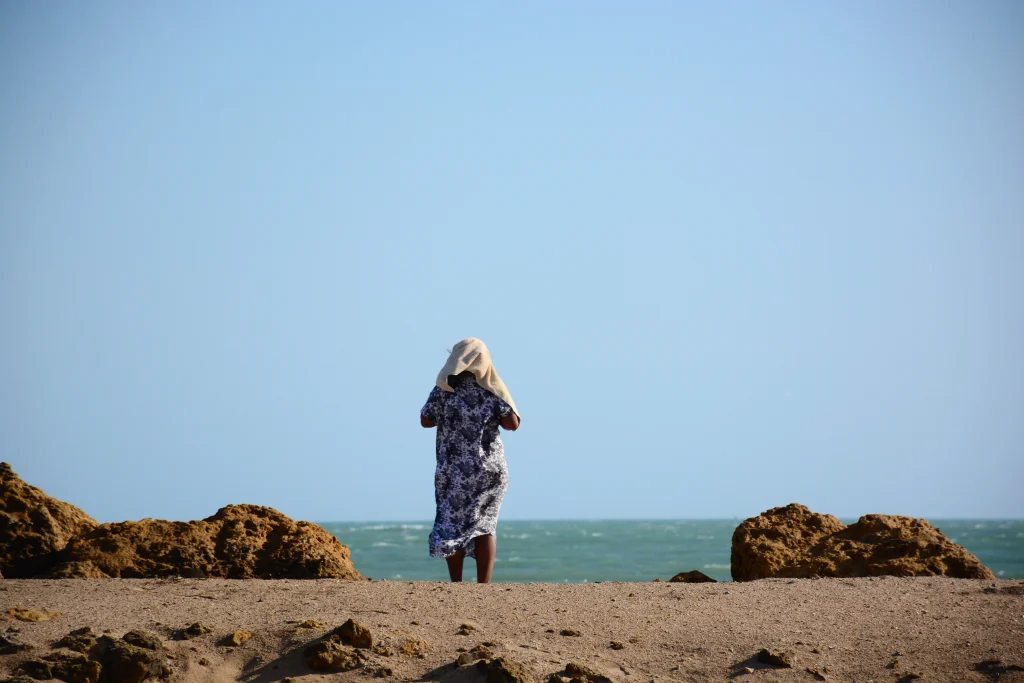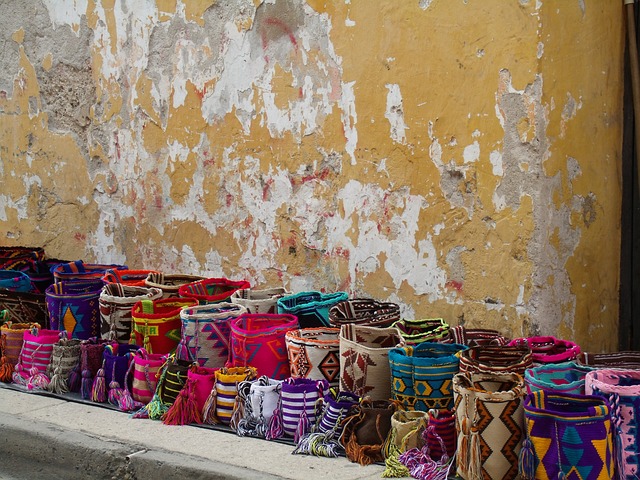
Wayuu culture has thrived for centuries in the arid La Guajira Peninsula, northern Colombia and Venezuela, showcasing resilience, ancestral wisdom, and adaptation despite climate change and industrial pressures.
Ancestral guardians of La Guajira
The Wayuu people, numbering nearly 370,000 across Colombia and Venezuela, are the primary custodians of the Guajira region. Their history reflects a legacy of resistance against Spanish colonization, during which they successfully maintained sovereignty over their territory for more than three centuries. This enduring struggle is one of the foundations of Wayuu culture, rooted in autonomy, deep spiritual connection to the land, and communal resilience.
The Wayuu have developed systems of knowledge passed down through generations, such as seasonal migration patterns, ecological awareness, and oral traditions that preserve their history. These aspects ensure that cultural transmission remains strong even in the face of adversity.
The role of women in the Culture
A defining element is its matrilineal social structure, where women hold significant influence within families and communities. Women inherit and transmit lineage, manage household economies, and play essential roles in education and spirituality. Their leadership helps ensure cultural continuity and provides a powerful framework for maintaining traditional knowledge.
Furthermore, the Wayuu approach to conflict resolution highlights their commitment to peaceful coexistence. The Pütchipü’üi, or “palabreros,” are respected male mediators who use storytelling and negotiation to resolve disputes. Their work exemplifies how the culture prioritizes harmony over violence, using ancestral practices to maintain social balance.
Language and cuisine: pillars of Wayuu culture
Language and food are central to the preservation of Wayuu culture. The Wayuunaiki language, with its unique syntax and worldview, reflects the community’s way of understanding life, nature, and spirituality. Despite the widespread use of Spanish, Indigenous families continue to teach Wayuunaiki to children at home and in ethno-educational programs.
In the culinary realm, Wayuu ingenuity shines in dishes like friche, a flavorful goat meat dish seasoned with local spices and prepared during community gatherings. They also rely on guajiro beans and other native crops adapted to drought conditions. These practices demonstrate not only cultural identity but also sustainability in extreme environments.
Weaving and economy: preserving identity through ancestral artistry
Weaving is one of the most recognized and celebrated aspects of Wayuu culture. The women create intricately patterned mochilas (handwoven bags), each carrying symbolic meanings tied to clan identity, mythology, and personal stories. The colors, patterns, and techniques are passed down through generations, reinforcing both skill and heritage.
This art form provides economic empowerment to many families. Through fair trade initiatives and global interest in Indigenous craftsmanship, Wayuu women are able to support their households while preserving cultural practices. The success of Wayuu weaving highlights how tradition can be a vehicle for both cultural pride and economic independence.

Wayuu culture faces increasing pressure due to environmental and industrial threats. Prolonged droughts, intensified by climate change, have led to severe water shortages and reduced agricultural productivity. The expansion of coal mining and construction of dams have further displaced communities and limited access to traditional water sources.
Despite these obstacles, the indigenous continue to innovate by blending ancestral knowledge with modern strategies. They restore jagueyes—traditional water reservoirs—to harvest rainwater, and cultivate resilient crops in Apain, community gardens that ensure food security. These adaptations are powerful examples of the community’s ability to survive and evolve without compromising their identity.
Education as a tool for empowering Wayuu culture
Education is key to preserving and strengthening the community. Through intercultural and ethno-education programs, Wayuu youth gain access to both traditional wisdom and academic training. This integrated approach allows them to address the modern world while staying rooted in their heritage.
By nurturing bilingualism, ecological awareness, and critical thinking, these programs prepare the next generation to become advocates for their people. Many indigenous youth now pursue higher education, contributing to leadership roles in community development, human rights, and environmental advocacy.
Conclusion
The community stands as a vibrant example of how tradition and innovation can thrive together. Despite facing social, political, and environmental hardships, the Wayuu people continue to reinforce their roots, safeguard their territory, and shape a sustainable future grounded in community, equity, and ancestral wisdom.
Their enduring legacy offers a blueprint for cultural preservation and adaptation—one that invites the world to listen, learn, and support Indigenous voices in the face of global change.
Our Work as Cosecha Bags is dedicated to empowering the Wayuu community by promoting their traditional weaving techniques and vibrant cultural heritage. Through fair trade practices, the company supports Wayuu artisans by providing sustainable income opportunities while preserving their ancestral craftsmanship. By collaborating closely with the community, Cosecha Bags not only helps maintain the cultural identity of the Wayuu people but also fosters economic growth and social development in the region. Their work highlights the importance of valuing indigenous knowledge and promoting ethical fashion that respects both people and the planet.
Discover our online store featuring a stunning collection of Wayuu bags. Shop now and embrace the beauty of tradition!